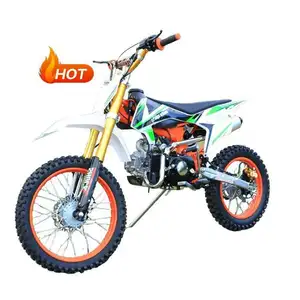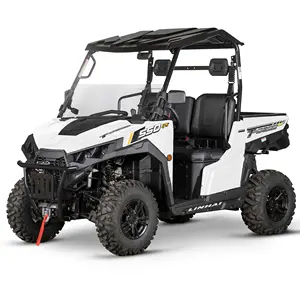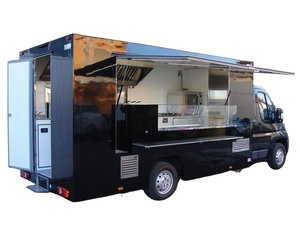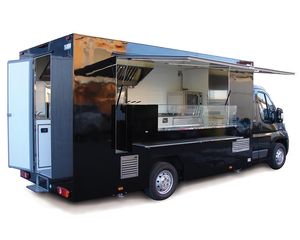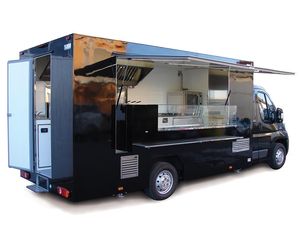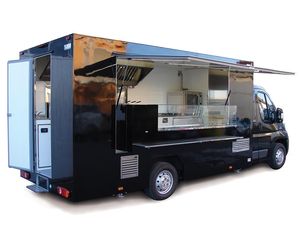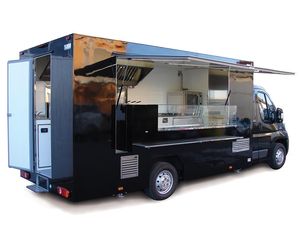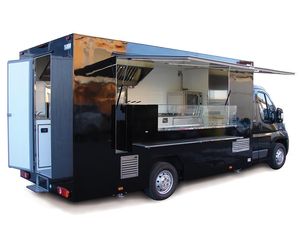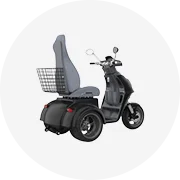الرائج في مجال عملك






عربة طعام سريع متنقلة 12 قدمًا عربة تاجرية لبيع المواد الغذائية للبيع في الولايات المتحدة الأمريكية وأوروبا وأستراليا
٩٬٥٤٥٫٥٤ ر.س. - ١٦٬٧٢٣٫٧٨ ر.س.
لمين: 1 مجموعة






مخصصة الشارع المحمول سريع عربات البيع شواء شاحنة وجبات سريعة للبيع
١٧٬١٨١٫٩٦ ر.س. - ١٨٬٧٠٩٫٢٥ ر.س.
لمين: 1 مجموعة
الشحن لكل قطعة: ٢٩٬٣٢٣٫٨٨ ر.س.




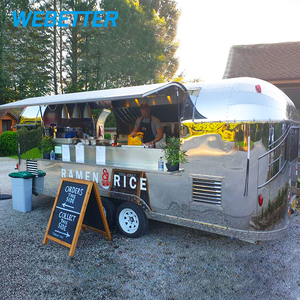


مطبخ متنقل webiter Airstream مجهزة بالكامل شاحنات بيتزا متنقلة للوجبات السريعة مزودة بمطبخ كامل للبيع
٢٥٬٥٤٣٫٨٥ ر.س. - ٤٩٬٨٦٥٫٨٦ ر.س.
لمين: 1 وحدة







على بيع الشاورما عربة الطعام في الهواء الطلق/عربة طعام شوارع كشك/عربات القهوة شاحنة طعام متنقلة
٨٬٤٠٠٫٠٧ ر.س. - ٩٬٥٤٥٫٥٤ ر.س.
لمين: 1 مجموعة







معدات بحجم مخصص مطبخ متنقل مقطورة للوجبات السريعة شاحنة تاكو متنقلة مقطورة طعام مع شوان
٩٬٨٥٠٫٩٩ ر.س. - ٢٢٬٤٨٩٫٢٨ ر.س.
لمين: 1 مجموعة







مطعم WECARE جاهز لتعبئة الأطعمة السريعة مجهز بالكامل متنقل مطعم جاهز مطبخ حاوية للحانة مقهى
١٥٬١٢٠٫١٣ ر.س. - ٢٢٬٠٦٩٫٢٧ ر.س.
لمين: 1 مجموعة




2021 JY الغذاء شاحنة الساخن بيع الصين الوجبات السريعة شاحنة طعام متنقلة فان للبيع
١٨٬٧٠٩٫٢٥ ر.س.
لمين: 1 قطعة






شاحنات لبيع البيتزا متنقلة رخيصة من الفولاذ المقاوم للصدأ شاحنات لبيع المواد الغذائية السريعة بالمعايير الأسترالية
٢٢٬٥٢٧٫٤٦ ر.س. - ٢٩٬٠١٨٫٤٢ ر.س.
لمين: 1 مجموعة






حار بيع الملونة في الهواء الطلق توك توك الوجبات الخفيفة الشاي الجليد شاحنة الآيس كريم عربة الطعام الكهربائية المتنقلة عربة طعام
٢٢٬٤٥١٫١٠ ر.س. - ٢٣٬٩٧٨٫٣٨ ر.س.
لمين: 1 وحدة






جديد تصميم كبيرة كبيرة HY عربة طعام شاحنة وجبات سريعة العربة سيارة الشارع عربة غذاء متنقلة ل USA فان مع مجهزة بالكامل مطعم
١٢٬٢٩٤٫٦٥ ر.س. - ٣٤٬٠٥٨٫٤٦ ر.س.
لمين: 1 مجموعة






يفانغ Newwin عربات طعام متنقلة عربة بيع للبيع الغذاء مقطورة شاحنة الغذاء شاحنة للبيع ماليزيا
١٢٬٦٠٠٫١١ ر.س. - ١٣٬٩٣٦٫٤٨ ر.س.
لمين: 1 مجموعة






عربة لبيع الوجبات السريعة الأكثر مبيعًا/شاحنة لبيع الطعام للبيع في ماليزيا
٧٬٦٣٢٫٦١ ر.س. - ١١٬٤٥٠٫٨٢ ر.س.
لمين: 5 وحدات
الأبحاث ذات الصلة:
بيع القهوة المحمول فانبدء عمل فان القهوةشاحنات طعام مستعملةبيع القهوة المحمول فان الأعمالتشغيل القهوة فان الأعمالالقهوة فان الأعمالمبيعات فان التجاريةعربة طعام تدفئة متنقلة عربة5 2 جنيه استرلينيمطعم بيتزا كوخشاحنة طعام صغيرة متنقلةشاحنة الغذاء القياسية المتنقلة أسترالياشاحنة طعام صغيرة متنقلةشاحنة طعام طعام متنقلةشاحنة طعام متنقلة خارجية






المحمول هوت دوج عربات الطعام الجليد كريم الشاحنات الطعام السيارات كما البارات Truck شاحنة الوجبات السريعة تصدير إلى السوق الأسترالية
١١٬٤٥٤٫٦٤ ر.س. - ١٢٬٢١٨٫٢٩ ر.س.
لمين: 1 مجموعة






YG-DD-01S سيارة شاحنة الغذاء عربة طعام متنقلة للبيع الوجبات السريعة عربة CE
١١٬٤٥٤٫٦٤ ر.س. - ١٣٬٣٦٣٫٧٥ ر.س.
لمين: 1 وحدة
الشحن لكل قطعة: ١٩٬٠٩١٫٠٧ ر.س.


شاحنة طعام متنقلة قياسية سريعة ومخصصة في الولايات المتحدة مطبخ متنقل
٣٬٨١٨٫٢٢ ر.س. - ٧٬٦٣٦٫٤٣ ر.س.
لمين: 1 وحدة






عربة توزيع طعام من SILANG شاحنة تقديم طعام متنقلة للمناطق المجهزة بالكامل شاحنة تقديم وجبات سريعة
٨٬٥٩٤٫٨٠ ر.س. - ٢٨٬٩٣٨٫٢٤ ر.س.
لمين: 1 قطعة






الشارع شاحنة غذاء متنقلة عربة السفر التخييم مقطورة معدات التخييم فان دراجة المحمول مقصف الشاحنات للبيع شاحنة الوجبات السريعة أستراليا
٧٬٢٥٤٫٦١ ر.س. - ٨٬٤٠٠٫٠٧ ر.س.
لمين: 1 وحدة






شاحنة طعام عتيقة كبيرة للبيع شاحنة مطبخ متنقلة مع مطبخ كامل بالثلج عربة هوت دوج عربة مطعم
١٨٬٧٠٥٫٤٣ ر.س. - ٢٦٬٣٤١٫٨٥ ر.س.
لمين: 1 مجموعة






عربات طعام مخصصة من مصنع الموبايل للبيع/شاحنة طعام للبيع
٥٬٧٢٧٫٣٢ ر.س. - ٦٬٨٧٢٫٧٩ ر.س.
لمين: 1 قطعة






عربة طعام مقطورة المحمول المطبخ الاسترالي القياسية برغر شواء بيتزا شاحنة إمدادات شاحنة الوجبات السريعة عربة طعام للبيع في دبي
٢٥٬٢٠٠٫٢١ ر.س. - ٣٠٬٥٤٥٫٧١ ر.س.
لمين: 1 مجموعة
الشحن لكل قطعة: ١٩٬٠٩١٫٠٧ ر.س.






عربة نقل الطعام بمعدات كاملة, عربة نقل الطعام بمعدات كاملة ، تصلح للمقطورة للوجبات السريعة في الشوارع ، يمكن استخدامها في تقديم الطعام في المطاعم التي يتم تركيبها في المطاعم ، كما يمكن تركيبها على عربة نقل الطعام في الشوارع ، كما يمكن تركيبها على عربة نقل الطعام بسيارات كثيرة.
١٧٬١٠٥٫٦٠ ر.س. - ١٨٬٦٣٢٫٨٨ ر.س.
لمين: 1 مجموعة






شاحنة بيع العصير المتنقلة مع عربة البيع بالتجزئة للبيع شاحنة طعام محرك كهربائي
٤٬٥٤٣٫٦٨ ر.س. - ٦٬٠٧٠٫٩٦ ر.س.
لمين: 1 مجموعة






شاحنة بيتزا متنقلة مقطورة عربة طعام وجبة خفيفة دراجة نارية صغيرة شاحنة كهربائية
٨٬٧٨١٫٨٩ ر.س. - ٩٬٥٤٥٫٥٤ ر.س.
لمين: 1 مجموعة












حافظة لبيرة ومشروبات صغيرة متنقلة حافظة لطعام ووجبات خفيفة حافظة بثلاث عجلات حافظة لبيع الآيس كريم والكلاير للبيع
١١٬٠٥٣٫٧٣ ر.س. - ٢٣٬٢٨٧٫٢٨ ر.س.
لمين: 1 مجموعة






HEZE فولكس واجن شاحنة مثلجات/شاحنات الغذاء شاحنة طعام متنقلة/الرجعية شاحنة الغذاء
٩٬١٦٣٫٧٢ ر.س. - ٩٬٥٤٥٫٥٤ ر.س.
لمين: 1 مجموعة






عربة طعام سيلانج مجهزة بالكامل لتقديم الطعام عربة طعام سريعة للبيع
١٨٬٥٥٦٫٥٢ ر.س. - ٤٨٬٨٧٣٫١٣ ر.س.
لمين: 1 قطعة






UKUNG الغذاء شاحنة معدات المطبخ للبيع شراء الغذاء شاحنة المحمول مقصف الشاحنات للبيع عربة طعام
١٩٬٠٥٢٫٨٩ ر.س. - ١٥٢٬٧٢٨٫٥١ ر.س.
لمين: 1 قطعة






مقطورة قهوة عربة طعام مستعملة عربة عربة للبيع في ألمانيا
٧٬٦٣٦٫٤٣ ر.س. - ١٢٬٩٨١٫٩٣ ر.س.
لمين: 1 قطعة






شاحنة متنقلة بعلامة تجارية شهيرة للطعام في الصين لعام 2024، شاحنة بيع الطعام المتنقلة، شاحنة تخييم بعربة لبيع الطعام في أوروبا
٩٬٨٨٩٫١٨ ر.س. - ١٧٬٥٢٥٫٦٠ ر.س.
لمين: 1 مجموعة






شاحنة متنقلة لبيع الأطعمة السريعة من المورد الصيني مع شاحنة مطبخ بالكامل مقاس 72 بوصة للبيع
١١٬٤٥٤٫٦٤ ر.س. - ٣٠٬٥٤٥٫٧١ ر.س.
لمين: 1 مجموعة






Yowon المحمول عربة بيع الطعام السريع الجليد كريم مقطورة مع آلة وجبات خفيفة مخصص الغذاء شاحنة بالنسبة لنا. السوق البيتزا فان
١٣٬٧٤٥٫٥٧ ر.س. - ١٤٬٩٢٩٫٢٢ ر.س.
لمين: 1 وحدة






عربة وجبات سريعة على الطراز الأوروبي متنقلة تعمل بالكهرباء وثلاثة عجلات/شاحنة طعام للبيع/شاحنة لبيع الهمبرجر
٤٬٤٢٩٫١٣ ر.س. - ٧٬٥٦٠٫٠٧ ر.س.
لمين: 1 قطعة






أفضل تصميم مقطورة كونسيسيسينسيون متنقلة مربعة الشكل وشاحنات طعام طيارات للبيع في ماليزيا
٢١٬١٩١٫٠٨ ر.س. - ٣٨٬١٨٢٫١٣ ر.س.
لمين: 1 وحدة






شاحنة طعام-EC نوع الموافقة-مقطورة تقديم الطعام المتنقلة شاحنة برغر فان بار القهوة شاحنة الغذاء
١٬٩٠٩٫١١ ر.س. - ٢٬٦٧٢٫٧٥ ر.س.
لمين: 1 وحدة






ميني موبايل الوجبات السريعة عربة فان شاحنة للبيع الفلبين بيع شاحنات توزيع البوظة
٤٬٩٦٣٫٦٨ ر.س. - ٥٬٧٢٧٫٣٢ ر.س.
لمين: 1 مجموعة






شاحنة طعام مستعملة عالية الجودة من الفولاذ المقاوم للصدأ بسعر رخيص بأسعار منخفضة
٧٥٥٫٠٥ ر.س. - ٨٣٨٫٩٤ ر.س.
لمين: 1 وحدة





هانجي جود لارج الجديد، شاحنة الوجبات الجيدة لبيرجر الهوائية، شاحنة البيتزا للأعمال المتنقلة المصنعة لتقديم الوجبات اللذيذة أثناء التنقل
٢٥٬٥٨٢٫٠٣ ر.س.
لمين: 1 مجموعة
الشحن لكل قطعة: ١١٬٤٥٤٫٦٤ ر.س.
أعلى الفئات
حول شاحنة طعام متنقلة ماليزيا
يتميز Alibaba.com بمجموعة شاملة من الحالات الجديدة عالية الجودة والمتينة شاحنة طعام متنقلة ماليزيا. المنتجات والمستلزمات التي يمكن للعملاء الحصول عليها بأسعار معقولة. المجموعة الكاملة من المنتجات المعروضة على الموقع هي منتجات مستخدمة في حالة بدائية ، وشرائها يستحق تمامًا كل بنس. سواء كان المرء يريد شراء سيارات أو إلكترونيات وحتى المشروبات القاسية مثل الويسكي والشمبانيا ، يمكن للمرء أن يجد جميع أنواع المنتجات على الموقع لصفقات تنافسية. هؤلاء شاحنة طعام متنقلة ماليزيا. يتم فحص المستلزمات والمنتجات بعناية للتأكد من جودتها الخالية من العيوب ، وجميعها في ظروف عمل مثالية.
المجموعات المتنوعة من الدرجة الممتازة شاحنة طعام متنقلة ماليزيا. يتم استيراد المنتجات المتوفرة على الموقع من أجزاء مختلفة من العالم ويتم فحصها من قبل فنيين خبراء. تشتمل هذه المنتجات على منتجات مستعملة أو مستعملة معروضة للبيع بأسعار اقتصادية. يمكن للمرء الحصول على الأجهزة والمنتجات والمركبات المتطورة أيضًا ، والاختيار من بين نطاقات متعددة من المنتجات التي يمكن الوصول إليها على الموقع. تأتي العديد من هذه المنتجات مع ضمان المورد والتجارة وقد تخضع لشروط وأحكام البائعين.
في Alibaba.com ، الفئات المميزة لـ شاحنة طعام متنقلة ماليزيا. يتم فحص المستلزمات والمنتجات بعناية للتأكد من أن الأجهزة الداخلية في حالة الإلكترونيات والمركبات في أفضل حالة. في حالة المشروبات مثل الويسكي التذكاري والمشروبات الأخرى ، يتم فحص جودة المنتجات ومدة صلاحيتها بدقة. بالنسبة للسيارات ، يتم فحص جودة المحرك وتروس السلامة وظروف القيادة بصرامة لتجنب العيوب. يمكن للمرء أيضًا اختيار الساعات الفاخرة في حالة ممتازة وتقديم أفضل قيمة مقابل المال.
تحقق من المضاعفات شاحنة طعام متنقلة ماليزيا. على Alibaba.com وانتزاع هذه المنتجات في حدود الميزانية والقدرة على تحمل التكاليف. هذه المنتجات مخصصة للاستخدامات للجنسين ، ويمكن للمرء أيضًا العثور على منتجات للديكورات الداخلية ، والأطفال ، وغيرها الكثير. يتم تنظيف المنتجات وتغطيتها وصيانتها أيضًا قبل بيعها.
المجموعات المتنوعة من الدرجة الممتازة شاحنة طعام متنقلة ماليزيا. يتم استيراد المنتجات المتوفرة على الموقع من أجزاء مختلفة من العالم ويتم فحصها من قبل فنيين خبراء. تشتمل هذه المنتجات على منتجات مستعملة أو مستعملة معروضة للبيع بأسعار اقتصادية. يمكن للمرء الحصول على الأجهزة والمنتجات والمركبات المتطورة أيضًا ، والاختيار من بين نطاقات متعددة من المنتجات التي يمكن الوصول إليها على الموقع. تأتي العديد من هذه المنتجات مع ضمان المورد والتجارة وقد تخضع لشروط وأحكام البائعين.
في Alibaba.com ، الفئات المميزة لـ شاحنة طعام متنقلة ماليزيا. يتم فحص المستلزمات والمنتجات بعناية للتأكد من أن الأجهزة الداخلية في حالة الإلكترونيات والمركبات في أفضل حالة. في حالة المشروبات مثل الويسكي التذكاري والمشروبات الأخرى ، يتم فحص جودة المنتجات ومدة صلاحيتها بدقة. بالنسبة للسيارات ، يتم فحص جودة المحرك وتروس السلامة وظروف القيادة بصرامة لتجنب العيوب. يمكن للمرء أيضًا اختيار الساعات الفاخرة في حالة ممتازة وتقديم أفضل قيمة مقابل المال.
تحقق من المضاعفات شاحنة طعام متنقلة ماليزيا. على Alibaba.com وانتزاع هذه المنتجات في حدود الميزانية والقدرة على تحمل التكاليف. هذه المنتجات مخصصة للاستخدامات للجنسين ، ويمكن للمرء أيضًا العثور على منتجات للديكورات الداخلية ، والأطفال ، وغيرها الكثير. يتم تنظيف المنتجات وتغطيتها وصيانتها أيضًا قبل بيعها.

